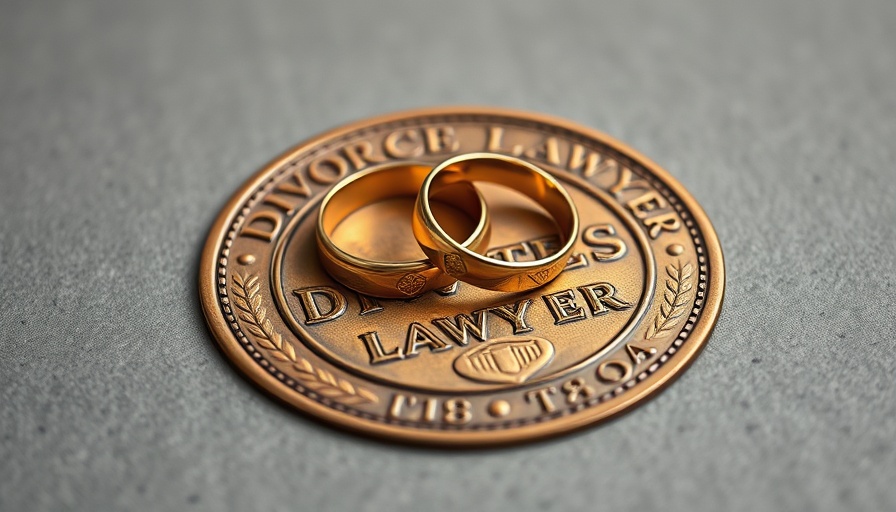
Why Expertise Alone Isn’t Enough
When individuals begin their search for the best divorce lawyers, their focus often rests on a broad assumption that expertise in family law is enough. However, while this serves as a fundamental requirement, true distinction lies in how adeptly those lawyers navigate beyond technical knowledge. Divorce is a deeply emotional process, necessitating a nuanced approach that intertwines legal expertise with human understanding and communication prowess.
Exceptional Communication Skills: The Key to Trust
One primary complaint among clients is feeling uninformed about their case's progression. The best divorce lawyers shine through their strong communication skills, ensuring clients are kept in the loop at every juncture. They explain processes in straightforward terms and clarify complex legal jargon, which ultimately cultivates trust. This proactive approach can greatly reduce the stress associated with divorce proceedings, as clients feel more empowered.
The Importance of Emotional Intelligence
Professional reputation coupled with emotional intelligence sets top-tier divorce lawyers apart. A lawyer’s ability to empathize and listen deeply, coupled with a commitment to civility, contributes significantly to their effectiveness in negotiation. Judges and opposing counsel respect lawyers who cultivate a reputation for honesty and reasonableness. This respect can positively impact the outcomes of divorce proceedings, making these soft skills critical to look for in potential lawyers.
Settlements Over Court Showdowns
Contrary to the stereotype of the aggressive divorce attorney, the best lawyers adhere to resolving disputes without defaulting to litigation. They prioritize negotiation and collaborative solutions such as mediation, recognizing that trials can be costly and emotionally taxing for clients. Understanding the implications of the Court's involvement helps clients seek a more amicable resolution through methods like Collaborative Divorce. Candidates should inquire, "What percentage of your cases proceed to trial?" This question provides insight into a lawyer’s philosophy and tendencies—whether they lean towards resolution or conflict.
Problem Solvers, Not Just Fighters
A notable quality separating effective divorce lawyers is their problem-solving capability. They blend legal knowledge with an empathetic approach, aiming not to elevate issues but to resolve them amicably. By guiding clients through the nuances of divorce, these lawyers promote solutions that prioritize the wellbeing of all parties involved, particularly children caught in the crossfire, making them invaluable allies in this legal journey.
Common Myths About Hiring Divorce Lawyers
There are several misconceptions surrounding divorce lawyers that can misdirect individuals in their search. One such myth is that all lawyers are the same regarding outcome—this could not be further from the truth. It's a complex field requiring specific skills and approaches that vary greatly among practitioners. This understanding can lead to more informed choices, aligning clients with lawyers that are suited to their unique case needs.
Emotional and Financial Benefits
Choosing the right divorce lawyer can yield significant emotional and financial benefits. An attorney who emphasizes collaborative processes can help mitigate the strain of divorce. Financial resources saved on lengthy court battles can be redirected towards more constructive future endeavors, highlighting the value of hiring a lawyer who prioritizes solutions over confrontation.
Conclusion: The Value of Educated Choices
In conclusion, selecting the right divorce lawyer hinges on understanding what truly sets exceptional practitioners apart. From communication skills to problem-solving abilities, these qualities serve as indicators of a lawyer’s potential to navigate complex family law matters effectively. As you consider your options, prioritize lawyers who demonstrate a commitment to negotiation, understanding, and ultimately seeking solutions that foster lasting peace. The journey of divorce can significantly affect not just your current circumstances but also your future. Make informed decisions that can lead to a brighter, more amicable resolution.
 Add Row
Add Row  Add
Add 




Write A Comment